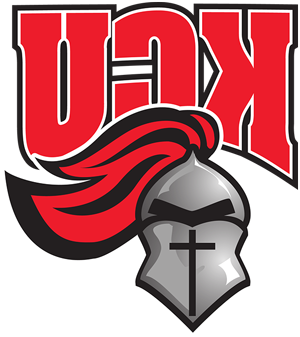Criminal Justice
Required Course Listing
Total Program Hours: 18
Community Relations in Criminal Justice
This class will emphasize the importance of developing good working relationships with fellow criminal justice professionals, judges, treatment providers, the public, etc. Consideration will also be given to prejudice and discrimination, individual rights, and the complex nature of human relations. (Prerequisite HSC 101 or HSC 110)
Ethics in Criminal Justice
Criminal justice professionals face numerous moral and ethical dilemmas over the course of their careers. This class will help identify appropriate moral and ethical behavior as it relates to individual professional conduct and behavior as well as ethics in corrections, the courts, and punishment. (Prerequisite HSC 101 or HSC 110)
Introduction to Corrections
This course will provide students with the basic skills and knowledge to prepare them to enter the field of corrections as a profession. Students will be taught ethical behavior and professional conduct, procedures relating to law and corrections, and the organization of the American corrections system.
Introduction to the Criminal Justice System
A basic introductory course that will orient students with regard to the history, philosophy, and development of criminal justice, the organization of criminal justice and public safety agencies, community corrections programs, and court processes and practices. This course will serve to introduce students to a career in the field of criminal justice.
Juvenile Delinquency
This course will give significant attention to the causes of criminal conduct and social deviancy on the part of juveniles. Individual views of delinquency will be studied including sociological and developmental views, the role of the family and peers, and drug use and delinquency. Juvenile court processes will be an integral focus of this class.
Probation and Parole
Probation and parole has long been used as important alternatives to the incarceration of criminal offenders. The history of probation and parole will be studied along with an in-depth review and assessment of their responsibilities and practices associated with the community supervision of offenders.
Community Relations in Criminal Justice
This class will emphasize the importance of developing good working relationships with fellow criminal justice professionals, judges, treatment providers, the public, etc. Consideration will also be given to prejudice and discrimination, individual rights, and the complex nature of human relations. (Prerequisite HSC 101 or HSC 110)
Ethics in Criminal Justice
Criminal justice professionals face numerous moral and ethical dilemmas over the course of their careers. This class will help identify appropriate moral and ethical behavior as it relates to individual professional conduct and behavior as well as ethics in corrections, the courts, and punishment. (Prerequisite HSC 101 or HSC 110)
Introduction to Corrections
This course will provide students with the basic skills and knowledge to prepare them to enter the field of corrections as a profession. Students will be taught ethical behavior and professional conduct, procedures relating to law and corrections, and the organization of the American corrections system.
Introduction to the Criminal Justice System
A basic introductory course that will orient students with regard to the history, philosophy, and development of criminal justice, the organization of criminal justice and public safety agencies, community corrections programs, and court processes and practices. This course will serve to introduce students to a career in the field of criminal justice.
Juvenile Delinquency
This course will give significant attention to the causes of criminal conduct and social deviancy on the part of juveniles. Individual views of delinquency will be studied including sociological and developmental views, the role of the family and peers, and drug use and delinquency. Juvenile court processes will be an integral focus of this class.
Probation and Parole
Probation and parole has long been used as important alternatives to the incarceration of criminal offenders. The history of probation and parole will be studied along with an in-depth review and assessment of their responsibilities and practices associated with the community supervision of offenders.
Additional Course Notes
*Substitutions based on the student’s academic program may be made with the approval of the Program
Coordinator.
Well Prepared
“Thank you so much, Dr. Brickey! I was well prepared, both educationally and most importantly, spiritually. I will forever remember this experience. I pray I can continue to make Yancey School of Nursing proud as I practice my career.”
Nephtalie Fleur, Class of 2022


